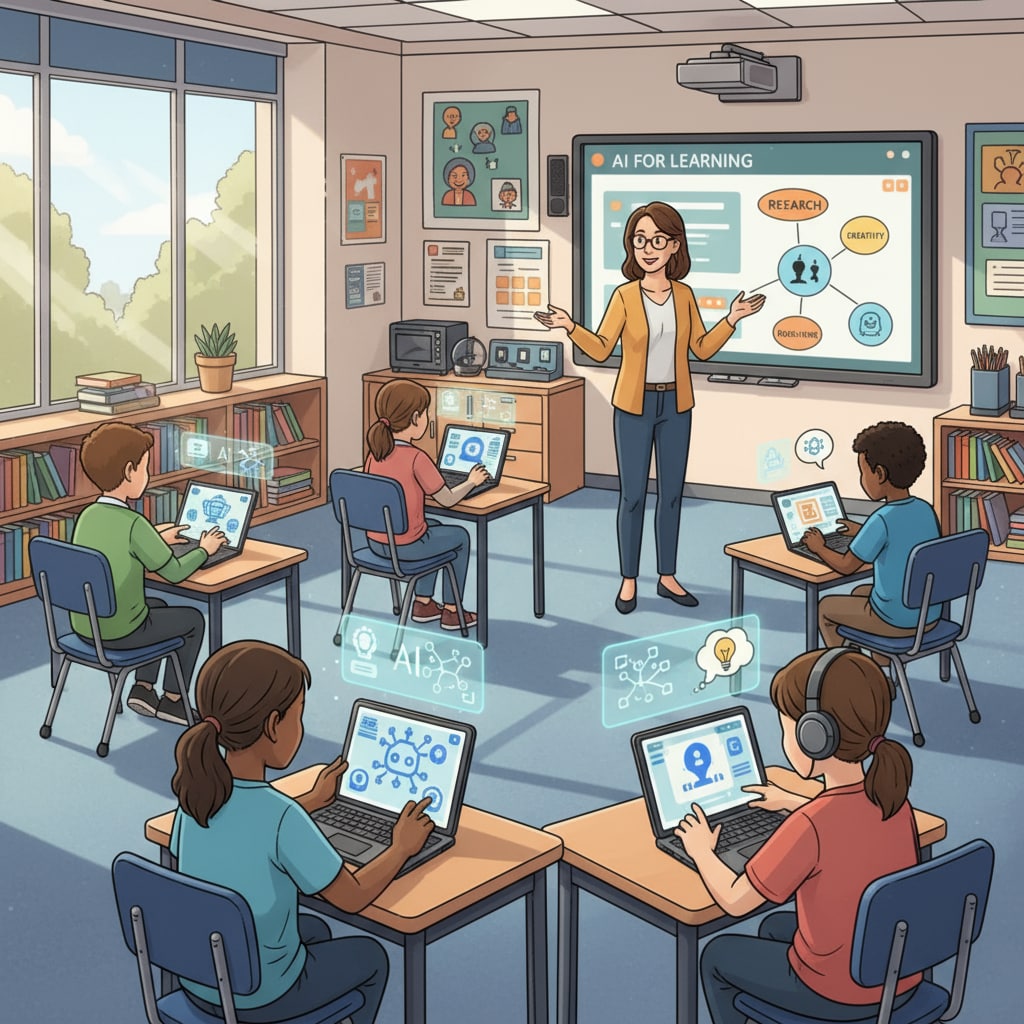AI policies, academic integrity, and skill values are at the forefront of discussions as artificial intelligence permeates the educational landscape, especially in K12 settings. The integration of AI tools in schools has brought about a new set of challenges and opportunities. As students in the K12 phase are increasingly exposed to these technologies, it’s crucial to define the boundaries of their use.

The Rise of AI in K12 Education
AI has rapidly become a part of modern education. Tools like intelligent tutoring systems, grammar checkers, and even essay generators are now accessible to K12 students. For example, some platforms use AI to provide personalized learning experiences, adapting to each student’s pace and learning style. However, this widespread availability also raises concerns. Artificial intelligence in education on Wikipedia
The Ethical Dilemma of AI Use
The main issue lies in the potential for misuse of AI in academic tasks. When students rely too much on AI to complete assignments, it undermines academic integrity. For instance, using an AI essay generator to write an entire paper is a form of cheating. This not only devalues the educational process but also fails to develop students’ critical thinking, writing, and research skills. These skills are the cornerstone of academic success and future career development, highlighting the importance of skill values.

Moreover, there’s a lack of clear AI policies in many K12 institutions. Without proper guidelines, students may be unaware of what is acceptable and what crosses the line. This ambiguity can lead to unintentional violations of academic integrity.
The Impact on Students’ Core Skills
Over-reliance on AI can have a detrimental effect on students’ core skills. Writing, for example, is a skill that requires practice and development. When students use AI to correct grammar and structure their essays, they miss out on the opportunity to learn from their mistakes. Similarly, critical thinking skills, which are essential for analyzing information and formulating arguments, may not be fully developed if students rely on AI to provide answers. Educational aims and goals on Britannica
In addition, research skills are also at risk. Instead of learning to search for and evaluate sources, students may simply rely on AI-generated summaries. This can hinder their ability to become independent learners.
Finding a Balance: Strategies for K12 Education
To address these issues, K12 institutions need to develop comprehensive AI policies. These policies should clearly define what constitutes acceptable and unacceptable use of AI in academic work. For example, allowing AI for brainstorming ideas but not for writing entire essays.
Educators also play a crucial role. They should educate students about the importance of academic integrity and the proper use of AI. By integrating lessons on digital ethics into the curriculum, students can be made aware of the implications of their actions.
Furthermore, assessment methods need to be adjusted. Teachers can design assignments that require students to demonstrate their own thinking and skills, rather than simply relying on AI. For instance, oral presentations or in-class projects that demand real-time engagement and problem-solving.
Readability guidance: In this article, we’ve explored the complex relationship between AI in K12 education, academic integrity, and skill values. By understanding these issues and implementing appropriate strategies, we can ensure that technology enhances, rather than undermines, the educational experience. Through clear policies, education, and adjusted assessment, we can find a balance that promotes both the use of AI and the development of students’ core skills.


